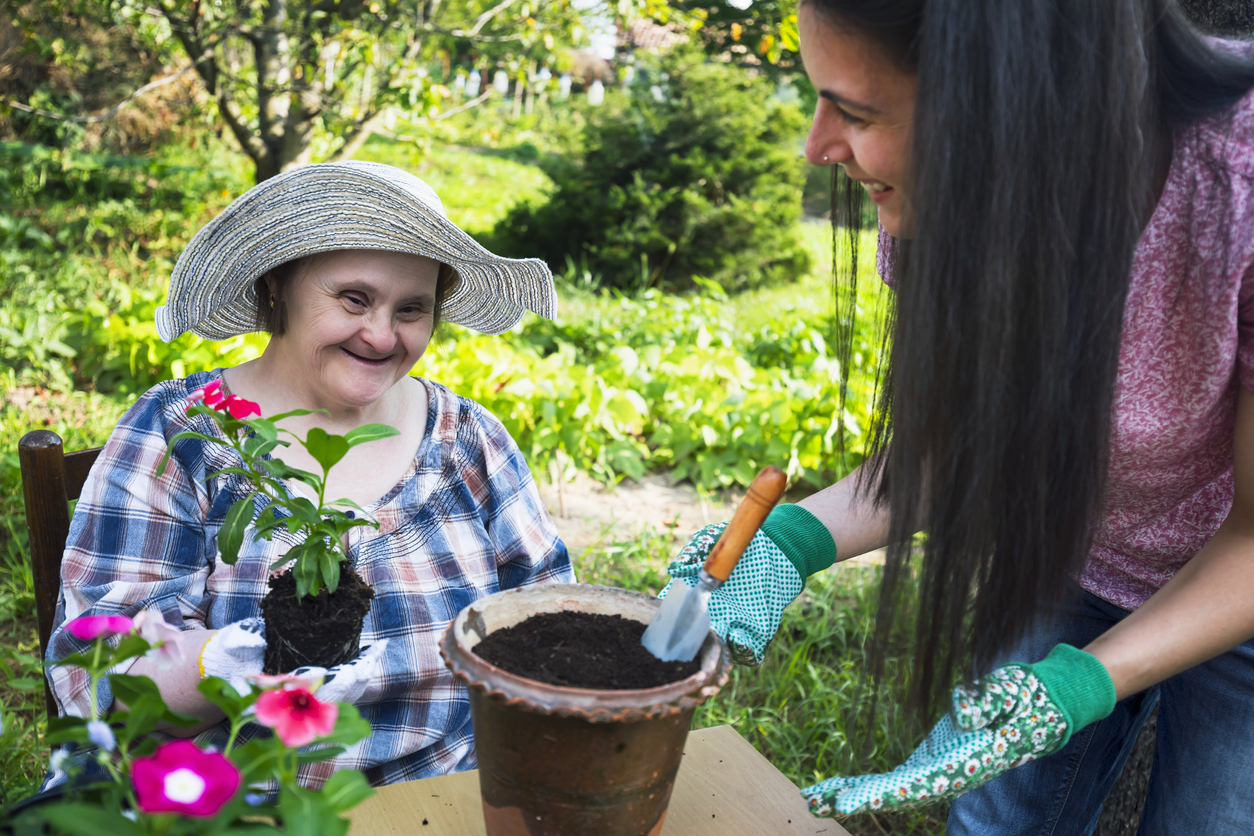Written by: Xuan (Jade) Wu, Ph.D., AIFD, CFD, EMC, AIFD Certified Floral Evaluator/Judge, Assistant Professor & Extension Specialist, Texas A&M AgriLife Extension
Nature has never failed to amaze us as a profound source of joy, inspiration, and wonder. A sensory garden is a specially designed garden, that provides a wide range of sensory experiences, including touch, scent, taste, and sound in addition to sight. For children with special needs, sensory gardens can provide a unique and enriching experience, allowing them to explore their senses and connect with the world in a way that is both therapeutic and educational. In this blog post, we explore the myriad benefits of sensory for children with special needs, which can have a significant impact on their overall well-being and development.
Benefits of Sensory Gardens
Sensory Stimulation
Sensory gardens are multi-sensory spaces specifically designed to engage all senses. Children with special needs often experience sensory processing challenges. Sensory gardens can serve as an effective therapy tool to help them explore and experience the beauty of the natural world around them. The vibrant colors of flowers, the rhythmic splashing of water fountains, the tactile delight of different plants, the delicate scent of aromatic flowers and herbs, and the taste of fresh edible plants all contribute to a holistic sensory experience.
Physical Activity & Motor Skills Development
Many children with special needs require additional physical therapy to help promote the development of fine motor skills. Sensory gardens can be adapted to include walking paths, stepping stones, and balance beams, therapists can adapt activities to the garden’s unique features. All of this provides opportunities for therapeutic exercise and improving motor skills.
Emotional & Psychological Benefits & Well-being
Children with special needs may often face emotional and psychological challenges due to the limitations they encounter. Sensory gardens offer a serene and non-judgmental space where they can relax, unwind, and develop a sense of accomplishment. Engaging with the soothing, natural environment can help reduce stress, and anxiety, and help children build emotional resilience. Sensory gardens are valuable resources for children with autism, anxiety disorders, and ADHD.
Cognitive & Educational Benefits
Sensory gardens can be educational wonders. Children can learn about plant life cycles, culinary and medicinal plants, plant characteristics for identification, care and maintenance of plants, and pollinators for plants while exploring the garden. Sensory gardens serve as outdoor educational classrooms, elevating learning experiences with interactive, multi-sensory features, and offering a wealth of information for educational enrichment.
Social Interaction & Communication
Sensory gardens provide a natural and non-threatening setting for children with special needs to interact, whether with family, friends, teachers, or peers. Children of all abilities can work together to care for the garden, share discoveries, and simply spend time outdoors with others. This promotes social engagement, the development of social skills, and the building of relationships. For children with communication challenges, sensory gardens offer an environment that encourages communication through non-verbal means. This can include gestures, shared experiences, and joint activities, leading to improved communication skills.
Inclusivity & Accessibility
Well-designed sensory gardens are made to be inclusive and accommodating, ensuring children of all abilities access. Features like wheelchair-accessible paths, sensory panels at varying heights, and raised beds make these gardens a welcoming space for all. Inclusive and accessible designs promote a sense of welcoming and belonging, where every child can participate and enjoy the beauty of nature.
Therapeutic Benefits
Sensory gardens offer a multitude of therapeutic benefits for special needs children. Connecting with nature has been shown to improve attention, reduce aggression, and enhance the overall well-being of children with special needs. In addition, sensory gardens serve as excellent spaces for therapy sessions, including physical therapy, occupational therapy, speech therapy, and sensory therapy. Therapists can tailor activities to the garden’s features, making therapy more engaging and effective.
Sensory gardens are transformative spaces for children with special needs. They provide a holistic sensory experience, foster emotional and psychological well-being, aid cognitive development, promote physical activity, and offer numerous therapeutic benefits. These enchanting oases not only enrich the lives of children with special needs but also serve as a reminder of the power and beauty of nature in healing and nurturing the human spirit. As we continue to invest in inclusive and accessible spaces, sensory gardens prove to be an invaluable resource for the well-being and development of our children with special needs.
References
Hussein, H. (2012). Experiencing and engaging attributes in a sensory garden as part of a multi-sensory environment. Journal of Special Needs Education, 2, 38-50.
Hussein, H. (2012). The influence of sensory gardens on the behavior of children with special educational needs. Procedia-Social and Behavioral Sciences, 38, 343-354.
Hussein, H. (2010). Using the sensory garden as a tool to enhance the educational development and social interaction of children with special needs. Support for learning, 25(1), 25-31.
Photo Source: iStockphoto/ portishead1













